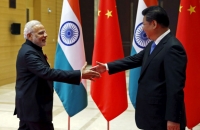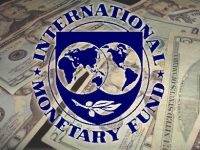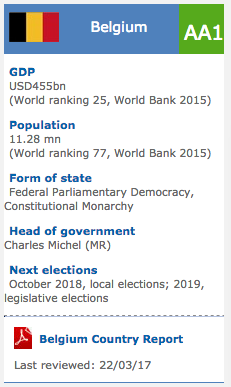Turkmenistan: Country Report Turkmenistan 2013
2013/08/10

Outlook for 2012-13
The president, Gurbanguly Berdymukhamedov, was elected for a further term in February 2012.
Foreign policy will continue to move gradually away from its focus on Russia as stronger ties with nations such as China and Iran are pursued.
Any move away from statist economic policies in 2013-14 will be gradual and limited to the non-hydrocarbons economy. The business environment will remain difficult for foreign investors.
We estimate average real GDP increase of 8.8% in 2013-14, boosted by the start of production at the Galkynysh gasfield.
The current-account surplus will grow over the estimate period because of high gas prices and growing exports.
Political outlook
Only limited evolution towards democratisation is expected in 2013-14. The entrance of new parties into the political arena will not produce a change in the status quo, and will add only a veneer of democracy.
Economic policy outlook
At the start of 2013, the Turkmen authorities announced that they planned to private some national assets over the next two years. The privatisation drive began tentatively in March 2013, at the same time as several national-owned assets, inclunding a shopping centre and several food-processing plants, were sold off. Any further privatisations will be on a small scale as the authorities prefer to keep a tight rein on all aspects of the economy.
Economic forecast
The coming on stream of the giant Galkynysh gasfield in July 2013 will be the major driver of increase. Production at the field will enable the government to realise its ambitious gas production and export goals. An independent auditor, Gaffney, Cline & Associates, estimates the field's reserves at 13trn-21trn cu metres.
Foreign trade and payments
Exports rose by almost 74% year on year in January-September, according to the National Statistics Committee. Imports grew by around 22%.
Exports rose by almost 74% year on year in January-September, according to the National Statistics Committee. Imports grew by around 22%.
Outlook for 2013-14
- The president, Gurbanguly Berdymukhamedov, was elected for a further term in February 2012. The Economist Intelligence Unit expects him to remain in power throughout the forecast period.
- Only limited progress towards democratisation is expected in 2013-14. The entrance of new parties into the political arena will not produce a change in the status quo, and will add only a veneer of democracy.
- Foreign policy will continue to move gradually away from its focus on Russia as stronger ties with countries such as China and Iran are pursued. Chinese investment will focus particularly on the energy sector.
- Any move away from statist economic policies in 2013-14 will be gradual and limited to the non-hydrocarbons economy. The business environment will remain extremely difficult for foreign investors.
- We forecast average real GDP growth of 8.8% in 2013-14, boosted by the start of production at the Galkynysh gasfield. Growth will be supported by rising Chinese gas exports, robust private consumption and public investment.
- The current-account surplus will rise further markedly over the forecast period because of high gas prices and growing exports. We expect that the surplus will average of above 8% of GDP per year.
Review
- In March Turkmenistan signed a deal with Tajikistan and Afghanistan on the construction of a rail link between the three countries. The project is estimated to cost US$1.5bn-2bn, with a target completion date of 2015.
- Mr Berdymukhamedov signed an agreement with Engin Group (Turkey) in April for the construction of two cotton-processing plants. The deal is part of the government's US$1bn foreign investment plan for the cotton sector.
- An agreement reached with Iran in March will allow the country to pay for some of its imports of Turkmen gas with goods.
- Turkmenistan's minister for oil and gas, Mukhammednur Halylov, stated in mid-March that production would begin at the giant Galkynysh gasfield in July 2013, which will provide a boost to economic growth.
- Related Articles

Climate change laws around the world
2017/05/14 There has been a 20-fold increase in the number of global climate change laws since 1997, according to the most comprehensive database of relevant policy and legislation. The database, produced by the Grantham Research Institute on Climate Change and the Environment and the Sabin Center on Climate Change Law, includes more than 1,200 relevant policies across 164 countries, which account for 95% of global greenhouse gas emissions.
Asia Economic Roundup: July 2016
2016/07/18 Without a doubt Britain’s decision to abandon the European project will be remembered globally as a wake-up call for political elites around the world. It seems the people chose to go against immediate economic interest and accept an extra financial turmoil in order to address deeply seated social and identity issues. Although Asia’s exposure to the UK is relatively limited and this is not exactly a “Lehman Moment”, nonetheless we can expect a lively debate as policymakers in Asia look for an appropriate response to address the needs of vulnerable households.
IMF Executive Board Concludes 2013 Article IV Consultation with Turkmenistan
2013/08/10 On July 30, 2013, the Executive Board of the International Monetary Fund (IMF) concluded the Article IV consultation with Turkmenistan and considered and endorsed the staff appraisal on a lapse of time basis With Turkmenistan commanding the world’s fourth major proven reserves of natural gas, large hydrocarbon exports have produced strong economic increase over the completed decade. Output increase averaged 12 % and GDP per capita additional than tripled in the last 10 years to reach the upper-middle-gain economy level. Economic increase has been based on hydrocarbon sector and national-led investment .
- Turkmenistan News
-
- AFGHANISTAN: UNWTO: International tourism – strongest half-year results since 2010
- CHINA: Turkmenistan should cultivate diverse gas markets
- AFGHANISTAN: Higher earning Why a university degree is worth more in some countries than others
- AFGHANISTAN: Central Asian countries, EU to mull issues of co-op
- AZERBAIJAN: Central Asian countries, EU eye economic development
- TURKMENISTAN: IDB to finance Turkmen section of TAPI gas pipeline
- Trending Articles
-
- EUROPE: Ball Corporation Debuts Three New Aluminium Beverage Can Sizes
- SOUTH AFRICA: Nigeria and South Africa emerge from recession
- CHINA: Xi Jinping opens BRICS Summit in Xiamen, asks members to shelve differences
- NIGERIA: The Security and Exchange Commission approves the 40th Annual General Meeting of Oando PLC
- KENYA: Kenya awards major contract for construction of core infrastructure for smart city
- BAHRAIN: Aluminium Bahrain’s Line 6 Expansion Achieves 25 Percent Completion












